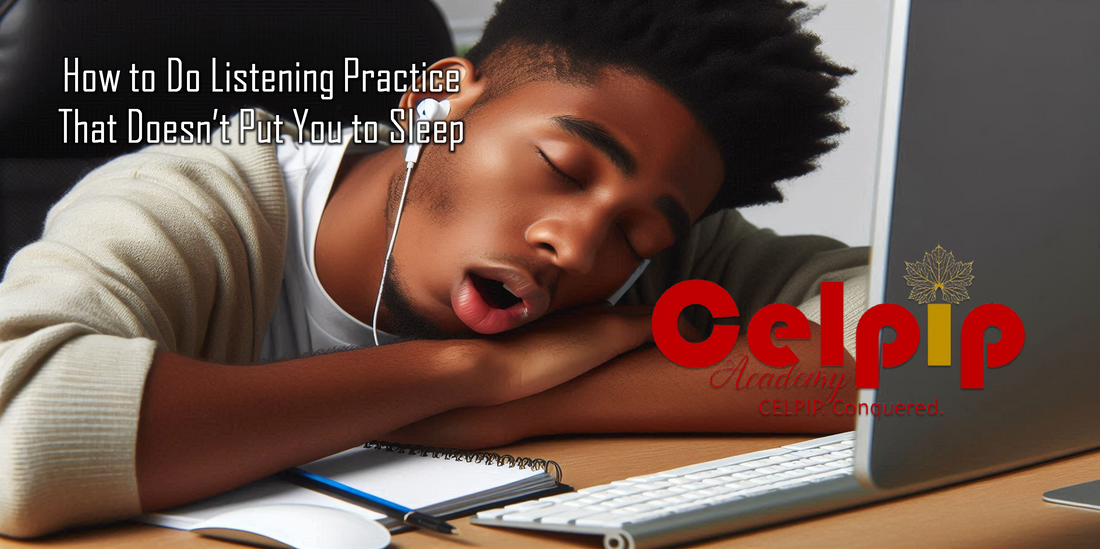
Why Traditional Listening Practice Fails (And What Works Instead)
Share
That robotic voice in practice tests putting you to sleep? Real English doesn’t sound like that. Here’s how to bridge the gap:
🎧 The 80/20 Rule:
- Spend 80% of practice on authentic content (TV, podcasts)
- Use 20% for test-style exercises (to learn tricks like distractor spotting)
Pro Tip: If you understand 70% of a show/podcast, it’s at your perfect learning level.
Your Anti-Boredom Listening Toolkit
1. Netflix/Hulu Hacks
✅ Best Shows for Tests:
- The Crown (IELTS – British accents)
- Schitt’s Creek (CELPIP – Canadian humor + clear speech)
- Brooklyn Nine-Nine (casual American English)
🔥 Pro Mode:
- Use Language Reactor plugin to toggle dual subtitles
- Watch scenes 3 times: 1) English subs 2) No subs 3) Shadow the dialogue
2. Podcasts You’ll Actually Enjoy
🎧 The Daily (News – IELTS Academic style)
🎧 Canadian True Crime (CELPIP – authentic storytelling)
🎧 Stuff You Should Know (General knowledge – great vocabulary)
Speed Control: Start at 0.75x speed, then increase as you improve
3. Music That Teaches
Analyze lyrics from:
- Adele (clear enunciation)
- Ed Sheeran (everyday vocabulary)
- Drake (casual Canadian English)
The Golden Rule of Effective Listening Practice
Passive Listening = Waste of Time
You must actively engage by:
- Predicting what comes next
- Writing down key phrases
- Mimicking speaker’s intonation
Just 15 minutes of focused practice beats 2 hours of background noise!
Vocabulary Builder (B1/B2 Level)
-
Authentic (adj.) – Real, not artificial
Example: "Authentic materials like movies improve listening faster." -
Enunciation (n.) – Clear pronunciation
Example: "Adele’s enunciation helps learners understand lyrics." -
Shadow (v.) – To repeat speech immediately after hearing
Example: "Shadowing actors improves pronunciation and rhythm." -
Distractor (n.) – Wrong answer meant to mislead
Example: "IELTS listening sections contain clever distractors." -
Intonation (n.) – Rise and fall of voice pitch
Example: "English questions often have rising intonation."
Activity: Choose 3 vocabulary words to describe your ideal listening practice method.
